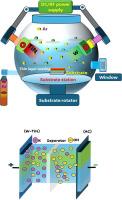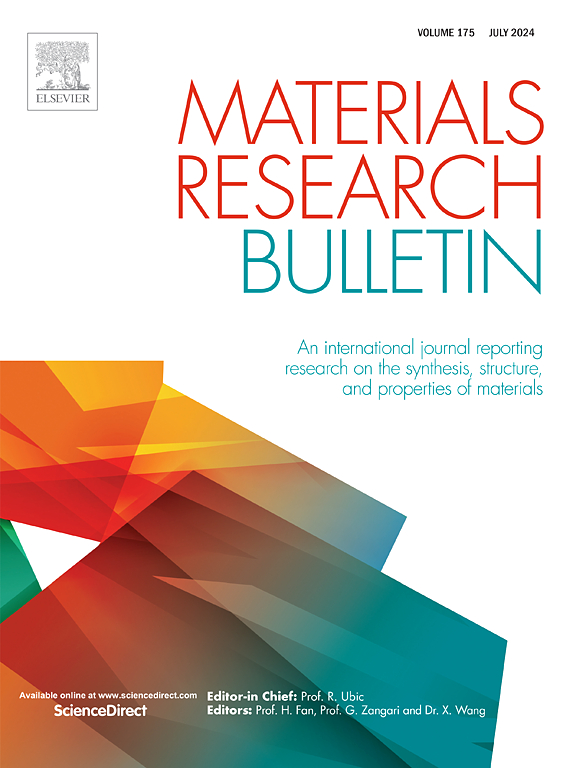Evaluating the synergistic effect of co-sputtered W-TiN and W-CrN electrodes for superior capacitance in hybrid supercapacitors
IF 5.3
3区 材料科学
Q2 MATERIALS SCIENCE, MULTIDISCIPLINARY
引用次数: 0
Abstract
Bimetallic transition metal nitrides have gained significant attention as battery-grade electrode materials for the application of energy storage. This study investigates the electrochemical performance of co-sputtered tungsten (W) with titanium nitride (TiN) and chromium nitride (CrN), where the electrode fabrication is carried out using an RF/DC magnetron sputtering unit. The structural properties, surface morphology, and elemental content of the sample are analyzed with X-ray diffraction, SEM, and EDX, respectively. The battery-grade nature of the electrode materials is revealed by the electrochemical performance in half-cell configuration. In half-cell assembly specific capacity (Qs) of 1408 C/ g is achieved with W-TiN and 583.8 C/ g with W-CrN electrode, respectively. The device (W-TiN//AC) delivers a specific capacity of 347.2 C/g, with energy and power densities of 88 Wh/kg and 1700 W/kg. Linear and quadratic models are employed to deconvolute the capacitive and diffusive impact on the total capacity of the device.

评估共溅镀 W-TiN 和 W-CrN 电极的协同效应,以提高混合超级电容器的电容量
双金属过渡金属氮化物作为电池级电极材料在储能领域的应用备受关注。本研究调查了氮化钛(TiN)和氮化铬(CrN)共溅射钨(W)的电化学性能。样品的结构特性、表面形貌和元素含量分别通过 X 射线衍射、扫描电镜和电离辐射显微镜进行了分析。半电池配置的电化学性能揭示了电极材料的电池级性质。在半电池组件中,W-TiN 和 W-CrN 电极的比容量(Qs)分别达到了 1408 C/g 和 583.8 C/g。装置(W-TiN//AC)的比容量为 347.2 C/g,能量密度和功率密度分别为 88 Wh/kg 和 1700 W/kg。采用线性和二次模型来解构电容和扩散对装置总容量的影响。
本文章由计算机程序翻译,如有差异,请以英文原文为准。
求助全文
约1分钟内获得全文
求助全文
来源期刊

Materials Research Bulletin
工程技术-材料科学:综合
CiteScore
9.80
自引率
5.60%
发文量
372
审稿时长
42 days
期刊介绍:
Materials Research Bulletin is an international journal reporting high-impact research on processing-structure-property relationships in functional materials and nanomaterials with interesting electronic, magnetic, optical, thermal, mechanical or catalytic properties. Papers purely on thermodynamics or theoretical calculations (e.g., density functional theory) do not fall within the scope of the journal unless they also demonstrate a clear link to physical properties. Topics covered include functional materials (e.g., dielectrics, pyroelectrics, piezoelectrics, ferroelectrics, relaxors, thermoelectrics, etc.); electrochemistry and solid-state ionics (e.g., photovoltaics, batteries, sensors, and fuel cells); nanomaterials, graphene, and nanocomposites; luminescence and photocatalysis; crystal-structure and defect-structure analysis; novel electronics; non-crystalline solids; flexible electronics; protein-material interactions; and polymeric ion-exchange membranes.
 求助内容:
求助内容: 应助结果提醒方式:
应助结果提醒方式:


